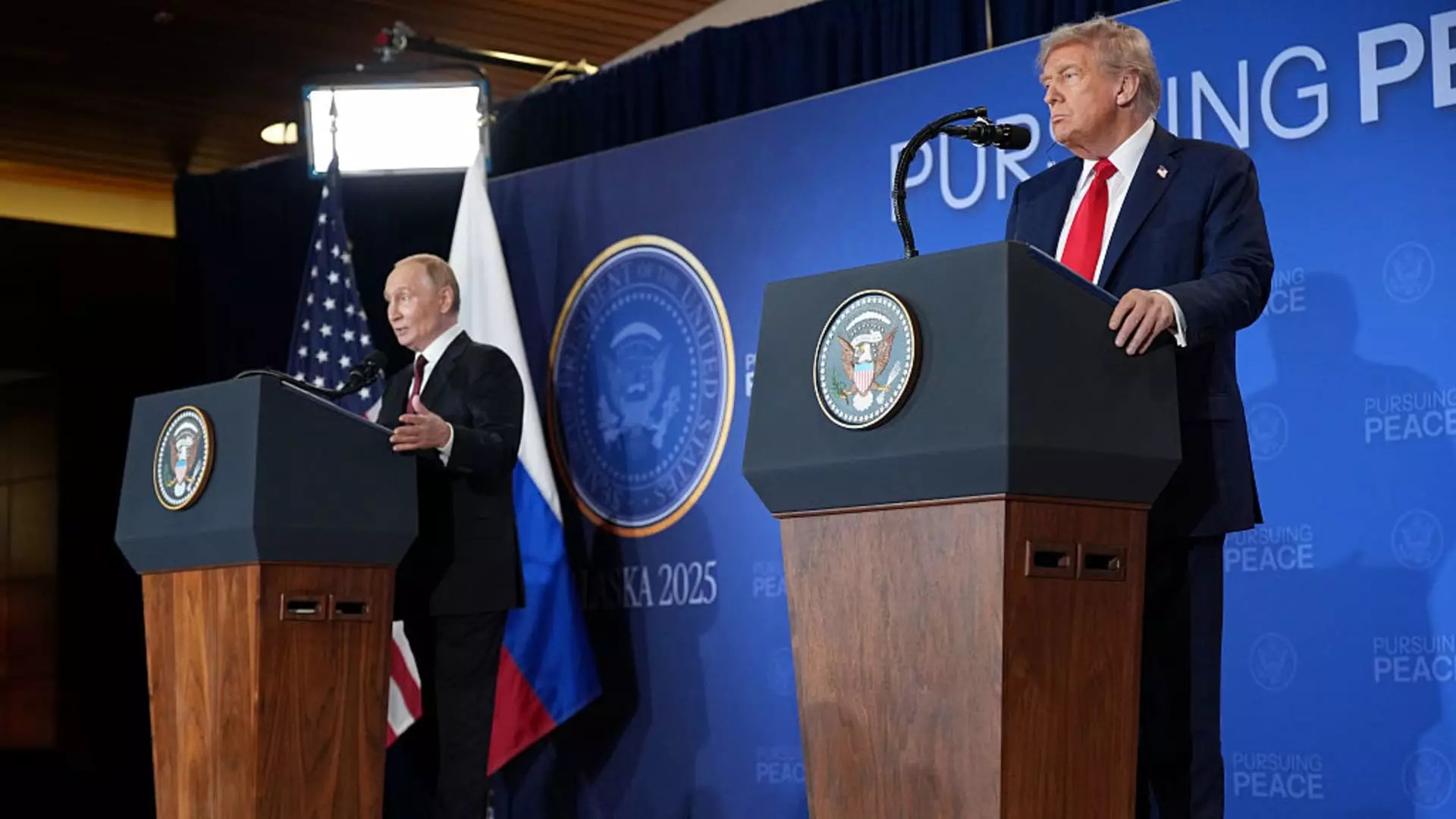The recent summits between world leaders often project an image of diplomacy triumphing over chaos; however, a closer examination reveals only superficial attempts atlösung. President Trump’s assertion that his meeting with Vladimir Putin was “very well” mask a deeper failure—no concrete agreement was achieved to stem the devastating conflict in Ukraine. To claim that simply envisioning a “Peace Agreement” as the ultimate solution signifies progress is an oversimplification that sidesteps the complex realities on the ground. Diplomatic gestures, without tangible commitments, risk becoming hollow theatrics that ultimately perpetuate the suffering of millions, rather than ending it.
The Risks of Overestimating Diplomatic Rhetoric
Trump’s emphasis on seeking a “comprehensive peace” over a ceasefire, while rhetorically appealing, dangerously empowers Russia’s ongoing military operations by allowing them to continue unchallenged. This position echoes a troubling complacency that undercuts the urgency expressed by Ukraine and its European allies who are desperate for stability. Such comments can be misinterpreted as giving a green light to prolong the war, enabling Russia’s brutal campaigns that have already displaced millions. The glorification of diplomatic talks divorced from action ignores the importance of maintaining pressure to uphold ethical standards and protect vulnerable populations.
The Political Cacophony and Its Consequences
The divergent reactions from Ukraine and European nations illustrate the profound political discord unleashed by these summits. While Trump discusses future meetings with Zelenskyy and Putin, the absence of firm commitments signals a disturbing neutrality that aligns too comfortably with Putin’s narrative. European leaders’ insistence that Ukraine should have a seat at future negotiations underscores the necessity of Ukrainian sovereignty in diplomatic processes. When U.S. and Russian narratives align too closely, it risks diluting the collective resolve needed to oppose aggressive expansionism. This circumvents the moral responsibility of Western democracies to stand unwavering against autocratic aggression, instead fostering ambiguity that only emboldens Russia’s imperial ambitions.
The Real Power Dynamic: Conflict as Political Leverage
The post-summit rhetoric from Russia, claiming “a new security architecture,” reveals more about Moscow’s strategic intentions than any genuine diplomatic breakthrough. Russian officials’ triumphalist tone exemplifies how negotiations are often manipulated to serve authoritarian interests under the guise of diplomacy. The apparent victory discourse highlights a dangerous trend: conflict becomes a tool used by autocratic regimes to reshuffle international relations in their favor. Such diplomatic narratives threaten to weaken the collective efforts aimed at defending democratic values and upholding international law, allowing Russia to reconfigure the security landscape on terms more favorable to its expansionist goals.
In this spectacle of high-stakes diplomacy, the veneer of success only obscures the reality: true peace requires decisive action, firm unwavering support for Ukraine, and a rejection of the false comfort of appeasement. Rhetoric devoid of accountability and tangible commitments risks prolonging the suffering and empowering autocratic ambitions. Genuine diplomacy should prioritize integrity and justice, not serve as a platform for political posturing that ultimately undermines global stability.

